 David O. Russell‘s vivacious new film, Silver Linings Playbook, is perhaps his best yet. While being full of charm and humor, it also has something to say about how fragile the mind is and what this world can do to someone on the brink. Bolstered by a barrier-breaking performance by Jennifer Lawrence and a surprisingly great turn by Bradley Cooper, the film will both shock and bewitch you.
David O. Russell‘s vivacious new film, Silver Linings Playbook, is perhaps his best yet. While being full of charm and humor, it also has something to say about how fragile the mind is and what this world can do to someone on the brink. Bolstered by a barrier-breaking performance by Jennifer Lawrence and a surprisingly great turn by Bradley Cooper, the film will both shock and bewitch you.
A lot of what Russell displays on the screen, however, is drawn from the novel of the same name by writer Matthew Quick, who was gracious enough to recently sit down with me to discuss the mixed emotions of watching his book on screen, his thoughts on body image in America, why he doesn’t mind pigeonholing himself a bit, and much more.
—————————————————————————————————————————————————————-
Go, See, Talk: I can imagine that there are a lot of different emotions going on when you see this film because you wrote the novel that it was adapted from. Does that get easier? Or is it always strange?
Matthew Quick: Well, for me, with Silver Linings, I’m a huge David O. Russell fan. I’ve seen all of his films. So watching that film, for me, it felt like I was watching as seven different people the first time: as a David O. Russell fan; as the author of the source material; as someone who’s trying to make a living doing this; as someone who’s new in the business. It was very stressful for me because my mind is going in so many different ways. But at some point in the movie that just all got shut off and I started to enjoy the story. To see how David made those decisions. Some of them were different than mine. And to see who he was, as a person and as a storyteller. I’m very interested in craft. My wife and I go to movies almost once a week. We jokingly say, “That’s our church.” But really, that’s our classroom. I watch a lot more film than read books. Now, I read a lot of books, but I think I’ve always been drawn to film first. People say, when they read my books: “They’ve very cinematic.” Some people out on the internet have accused me of writing this book on spec for David.
[Laughs]
Quick: Which is not the case, at all. But I could see why they would say that. I’m very inspired by film.
– There’s this great moment in the film with the weight loss thing. I loved how he kept running into people that wouldn’t recognize him. Was that from the book or was that from Russell?
Quick: It’s very much from the book. Pat (Cooper) is obsessed with losing weight. He’s trying to reinvent himself to create a new identity. He becomes obsessed with physical fitness in a way that is very unhealthy. I’ve seen friends and family members and even myself. I’ve gone through depressive episodes where I’ve lost a lot of weight and the ironic thing about it is that those were probably the worst times in my life. High anxiety. Almost dangerously so. And yet, every single person that I saw: “You look great! You lost a lot of weight. Wow, you must be doing really well.” I would get very angry when people said that to me, because inside, of course I wasn’t doing well.
But I think in America, we have this fascination with the way people look. We’re much more interested in how they look on the outside more than what’s going on on the inside. I wanted to put that out there with Pat. Pat thinks at first that he can just recreate his physical image and everything will be fine. But, of course it’s all the stuff on the inside that he really need to work on.
– The reason I really enjoyed that aspect is because I often see, especially with Bradley Cooper, when he plays difficult roles, critics and cynics basically say, “Oh, you can’t have a pretty person playing that role.” So I thought it was an interesting switch where it’s like, “Wait, he wasn’t pretty before the movie starts, but now he’s pretty.”
Quick: Yea, if you look on the wall in the house, they have a picture of a young Bradley Cooper, and I believe, I’m not 100% sure about this, but I’ve seen that picture before and I think that’s his high school yearbook picture. And if you look at that picture, you don’t see People’s Sexiest Man Alive. You look at someone you would just pass over. I’m sure Bradley’s transformation into a Hollywood icon movie star. He was a person before he had all of that. So I’m sure that’s within him. I think he showed great range. When I met him on the movie set, he was the first person to come up and shake my hand. He saw me, walked right over, and made me feel very comfortable. Within just a couple of seconds I was just talking to a really cool guy who was also an Eagles fan. I have nothing but really great things to say about him and his performance.
– You talked about this book at length last night, and it was very affecting for me, personally, to hear the passion in your voice after watching this film.
Quick: Thank you.
– But I get the sense that while writing these characters, it was very affecting for the different characters. Do you write this as Tiffany’s (Lawrence) character and hit a stopping point that will affect you a different way than Pat’s character?
Quick: Well, the book is written from a first person point of view. You are squarely in Pat’s head, the whole time. So your view of Tiffany is a biased one because you’re getting it through the filter of Pat’s mind. So I wasn’t as affected by the other characters as much. I really was channeling Pat Peoples and emoting through him. In the book he’s a little bit more emotional. He’s also suffered from brain trauma. Which is a different aspect. So Pat is not getting everything like Bradley Cooper does in the film.
You see Bradley Cooper say that he’s diagnosed bipolar. So he’s a little bit different than the Pat in the book. So the tragedy with writing Pat, who is not getting what’s going on, is that as the author I was aware of that. I was aware that I was working through this limited point of view and I knew so much more than Pat was able to figure out. It created a great deal of sympathy within me. There were times when I wanted to take him aside and say, “Hey, you have to see these things.” But as the author I had to stay true to that limited point of view.
– You were talking last night about how you want to branch out. You want to do screenplays. But you mentioned, also, that your YA books, this book, and you mentioned you had another book in the works… You said that when people read it, they know it’s a Quick book. You noted that you deal with a lot of mental health issues throughout your works. Are you worried about pigeonholing yourself or is this something you’re so passionate about that you don’t care?
Quick: I think every artist has something within them to offer the world. If you look at my books, my first YA book is about a teenage girl who is a relentless optimist but she’s homeless. It’s a completely different story than Silver Linings, but thematically I think you see throughout all of my work this stuff that’s really important to me. One of my favorite writers is Ryū Murakami, and I love Murakami’s stuff and one of the reasons is that every time I read a Murakami book, I know I’m going to feel a certain way. He’s going to take me into this surreal world and all of his books kind of blend together and take you to this magical place. That’s what I want from Murakami. That’s like who he is. I think if he came out with a book that was radically different, I’d be really disappointed and worried. That’s not to say artists can’t reinvent themselves. Because they can. But I think if you stray away from that authenticity, I don’t think the work is going to be as good. I know, for me, when I’ve tried to write stories that didn’t go anywhere, it’s usually because they weren’t about things I was really passionate about.
– Were you actively trying to be a part of this? You mentioned you were on set for just a single day. Did you seek that out or were you brought into the fold?
Quick: When they option your book, they pay for the rights. That’s it. That’s all they have to do. I was mature about that. I knew and I understood as a professional that this was now somebody else’s project. Of course I was very much interested in it. When they sent me the screenplay, I read it immediately. Especially as a David O. Russell fan. But it wasn’t until I was on the movie set that I really understood that this was David’s workplace. This was his place that he’s crafting this story. That’s when I really understood that with all the glitz and glamor of Hollywood, David is a storyteller. This was his world. Just like I wouldn’t want anybody looking over my shoulder when I’m writing a novel, I’m sure he didn’t want anyone to influence his screenplay. And I respect that. I felt this screenplay was great when I read it. So I have somewhat of a relationship with David now. Like we texted last night, back and forth. He’s been very cool to me and he’s kind of brought me into the fold a little bit. I appreciate that. I think one of the reasons, maybe, I’d like to think, is because I am respectful of him as an artist and what he does. I wouldn’t want him to not be David O. Russell. I wouldn’t want to change him. He’s the type of storyteller that you say, “Just let this guy go!” He’s going to make great art.
Thanks very much to Matthew Quick for his time. Silver Linings Playbook is in theaters on November 21, 2012.
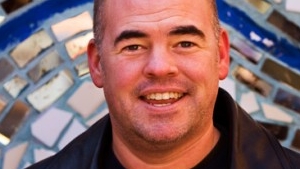
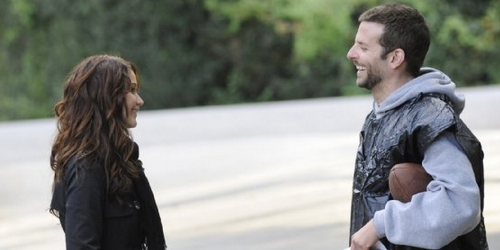
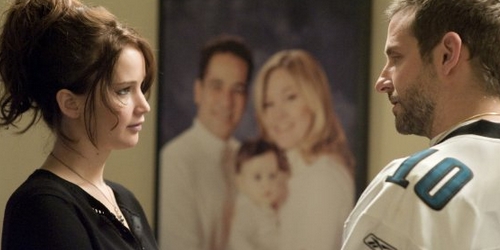
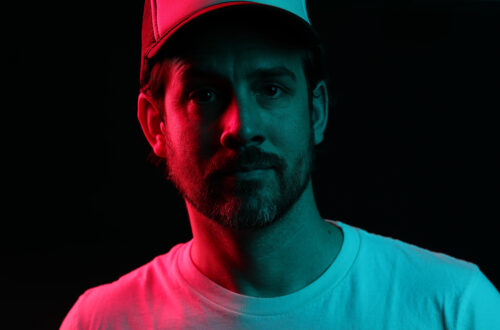
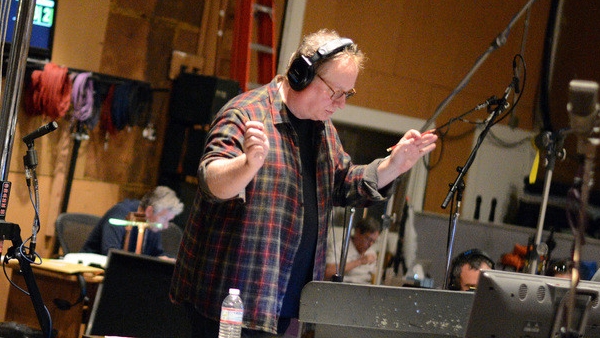
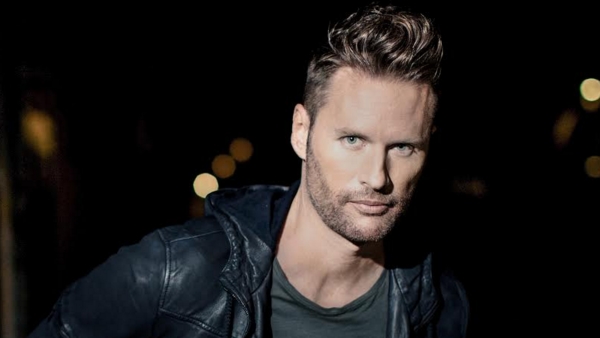
One Comment
Jess
Loved this interview. Very interesting how he almost gushes over David O. Russell. It’s cool because if your work is being taken over by someone else’s creative license it has to be fantastic to have it be someone you admire so much. I loved the film so I might have to read the book at some point now.